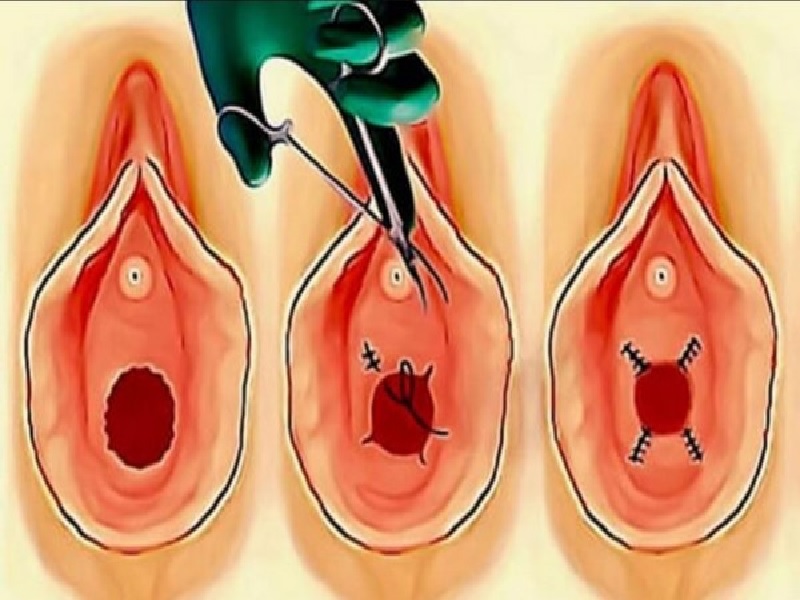Hymenoplasty in Lebanon
Search and Compare the Best Clinics and Doctors at the Lowest Prices for Hymenoplasty in Lebanon

Find the best clinics for Hymenoplasty in Lebanon
With Medijump you can browse 1 facilities offering Hymenoplasty procedures in Lebanon. The cheapest price available is $777 in Beirut. And for the cheapest price globally, prices start from $342 in India.
Hymenoplasty in Beirut
Price: $ 777
India offers the best prices Worldwide
Price: $ 342
Dr Bernard Kassab, located in Mansouriyeh, Beirut, Lebanon offers patients Hymenoplasty procedures among its total of 5 available procedures, across 3 different specialties. The cost of a Hymenoplasty procedure starts from £610, whilst the national average price is approximately £610. All procedures and treatments are undertaken by the lead specialist at the Hospital, and they are not accredited by any recognized accreditations institutes
- Home
- Lebanon
WHY US?
At Medijump, we're making medical easy. You can search, compare, discuss, and book your medical all in one place. We open the door to the best medical providers worldwide, saving you time and energy along the way, and it's all for FREE, no hidden fees, and no price markups guaranteed. So what are you waiting for?

Free

Best Price

Widest Selection

Risk-Free
What you need to know about Hymenoplasty in Lebanon

Hymenoplasty also referred to as hymen reconstruction or hymenorrhaphy, is a surgical procedure to restore the hymen temporarily. The procedure is not regarded as a gynecology procedure and is often categorized as plastic surgery as it is usually performed for non-medical reasons. Hymenoplasty is normally carried out to cause bleeding in post-nuptial intercourse because, in some cultures, it is considered as a sign of virginity.
What does a Hymenoplasty Procedure Involve?
Hymenoplasty is simple, non-invasive, and is mostly performed under local anesthetic, but under some circumstances, it may also be carried out under general anesthetic. Your doctor stitches a membrane, sometimes with a gelatin capsule with an artificial bloodlike substance, and the new hymen is made to match the real hymen.
How Long Should I Stay in Lebanon for a Hymenoplasty Procedure?
Although hymenoplasty is an outpatient procedure, you should aim to stay in Lebanon for at least 5 to 7 days for your initial recovery and a follow-up hospital checkup. During the checkup, your surgeon will monitor your health and healing progress, and to remove any stitches if they did not use dissolving stitches.
What's the Recovery Time for Hymenoplasty Procedures in Lebanon?
Some patients can go back to work within 1-2 weeks, but the total recovery period until you are able to resume your full daily routine (including exercise and heavy lifting) can take at least 6 to 8 weeks. You should also avoid penetrative sex for about three months.
What sort of Aftercare is Required for Hymenoplasty Procedures in Lebanon?
It is really important to keep your genital area dry and clean. Your doctor will give you a set of instructions regarding healing for the stitches, dietary restrictions, and exercises. It is best to avoid tampons and menstrual cup during and after your recovery period. Some activities can also rip or break the hymen, such as pelvic examinations, sexual intercourse, regular physical activities, gymnastics, or horseback riding.
What's the Success Rate of Hymenoplasty Procedures in Lebanon?
Hymenoplasty is a relatively safe procedure with a high success rate. However, it carries some rare side effects and risks, including infection and prolonged bleeding. Occasionally, the procedure can also cause stricture or hymen overcorrection, making sexual intercourse difficult, but it is not a long-term problem.
Are there Alternatives to Hymenoplasty Procedures in Lebanon?
There is currently no alternative to hymenoplasty as this procedure is the best option for people who want to reconstruct their hymen.
What Should You Expect Before and After the Procedure
Before hymenoplasty, your hymen may be broken or ripped due to various reasons. After the procedure, your hymen will have a ‘new’ hymen intact.
Whilst the information presented here has been accurately sourced and verified by a medical professional for its accuracy, it is still advised to consult with your doctor before pursuing a medical treatment at one of the listed medical providers
No Time?
Tell us what you're looking for and we'll reachout to the top clinics all at once
Enquire Now

Popular Procedures in Lebanon
Prices Start From $500

Prices Start From $222

Prices Start From $714

Prices Start From $69

Recommended Medical Centers in Lebanon for Hymenoplasty

- Interpreter services
- Translation service
- Religious facilities
- Medical records transfer
- Medical travel insurance
- Health insurance coordination
- TV in the room
- Safe in the room
- Phone in the room
- Private rooms for patients available

- Interpreter services
- Translation service
- Religious facilities
- Medical records transfer
- Medical travel insurance
- Health insurance coordination
- TV in the room
- Safe in the room
- Phone in the room
- Private rooms for patients available

- Interpreter services
- Translation service
- Religious facilities
- Medical records transfer
- Medical travel insurance
- Health insurance coordination
- TV in the room
- Safe in the room
- Phone in the room
- Private rooms for patients available

- Interpreter services
- Translation service
- Religious facilities
- Medical records transfer
- Medical travel insurance
- Health insurance coordination
- TV in the room
- Safe in the room
- Phone in the room
- Private rooms for patients available

- Interpreter services
- Translation service
- Religious facilities
- Medical records transfer
- Medical travel insurance
- Health insurance coordination
- TV in the room
- Safe in the room
- Phone in the room
- Private rooms for patients available
Hymenoplasty in and around Lebanon
Lebanon, a country on the eastern shore of the Mediterranean Sea, is one of the smallest sovereign states. The country boasts a fascinating mixture of the Middle East and the West, Christianity, and Islam, and tradition and modernity. It has everything from golden beaches and World Heritage Sites to energetic nightlife and delicious cuisine. Among other countries in the Middle East, Lebanon appears to be one of the most popular medical tourism destinations. Over 10% of the tourists visiting the country, particularly from neighboring countries, come to receive medical care. Many hospitals and clinics in the country are accredited to the ISO:9000 standard and offer world-class specialist services in spine treatment, orthopedics, organ transplant, and other complex surgeries, as well as advanced cancer treatments. Cosmetic and reconstructive surgery are also popular.
Popular Parts of Lebanon
Beirut, the capital and largest city of Lebanon, is filled with historic landmarks and natural wonders. The most famous attractions in the city are the National Museum of Beirut, the Corniche and Pigeon Rocks, Sursock Museum, and Mohammed Al Amin Mosque. Many people also come to Lebanon to visit the port town of Sidon. Once a rich and thriving Phoenician city, it is dotted with historical monuments and ancient remnants, particularly in its Old City. Other popular cities include Tripoly, Baalbek, Byblos, and Tyre.
Weather and Climate in Lebanon
Lebanon has four seasons: winter (December to March), spring (April to May), summer (June to September), and autumn (October to November). Winter is the rainy season with high precipitation levels and cool temperatures. It is snowy in the mountains, but in some places, such as Beirut, it just rains during this season. Summer is hot, sunny, and dry, and can get very humid in cities located close to the sea. In the summer, the average temperatures are around 28°C to 30°C. Spring and autumn are both warm and pleasant.
Getting around in Lebanon
The main international airport where visitors fly into and out of Lebanon is Beirut–Rafic Hariri International Airport, which is the only operational commercial airport in the country. It serves international flights to numerous major cities across Europe and the Middle East, including Moscow, Paris, London, and Dubai. Given the small size of the country, there are no internal flights. Intercity buses and minibus are available and have an extensive network, especially in coastal areas. The best way to get around the country is by hiring a car (with a driver) or by using intercity taxis.
Tourist Visas in Lebanon
All visitors need to obtain a visa to enter and stay in Lebanon unless they come from one of the seven visa-exempt countries (including Kuwait, Bahrain, Qatar, Saudi Arabia, Oman, the United Arab Emirates, and Jordan). Citizens of 81 countries, including all EU countries, Australia, China, Canada, and the United States, are eligible for a visa on arrival for a maximum stay of 30 days. A conditional visa on arrival is available for citizens of 15 countries, including Algeria, Libya, Iraq, and Yemen.
Additional Information
- Local Currency: Lebanese Pound (LBP) is the official currency in Lebanon. 1 USD is equivalent to around 1,507 LBP. US dollars and the euro is widely accepted as well.
- Money & Payments: ATMs are widely available in many places around Beirut and other large cities. Many ATMs dispense both US dollars and Lebanese pounds. Credit cards, particularly Visa and MasterCard, are accepted at most major establishments. Tipping can be expected, usually around 10% to 15% of the bill.
- Local Language: Arabic is the official language in Lebanon. English and French are widely spoken as well, and many Lebanese can speak at least two to three languages.
- Local Culture and Religion: Islam (around 60% of the population) and Christianity (around 34%) are the primary religions in Lebanon. About 5% of Lebanese practice the Druze faith, while other religions are practiced by the remaining 1% of the population.
- Public holidays: New Year’s Day, Christmas Day, Eid al-Fitr, Eid al-Adha, All Saints’ Day, Resistance and Liberation Day, as well as Independence Day are some of the more important holidays in Lebanon.
Popular Searches
- Plastic Surgery in Thailand
- Dental Implants in Thailand
- Hair Transplant in Thailand
- Breast Augmentation Thailand
- Gastric Sleeve in Thailand
- Gender Reassignment Surgery in Thailand
- Laser Hair Removal in Bangkok
- Botox in Bangkok
- Dermatology in Bangkok
- Breast Augmentation in Bangkok
- Coolsculpting in Bangkok
- Veneers in Turkey
- Hair Transplant in Turkey
- Rhinoplasty in Turkey
- Stem Cell Therapy in Mexico
- Rhinoplasty in Mexico
- Liposuction in Mexico
- Coolsculpting in Tijuana
- Rhinoplasty in Korea
- Scar Removal in Korea
- Gastric Sleeve in Turkey
- Bone Marrow Transplant in India
- Invisalign in Malaysia
- Plastic Surgery in the Dominican Republic
- Tummy Tuck in the Dominican Republic
- Plastic and Cosmetic Surgery in Poland
- Rhinoplasty in Poland
- Hair Implant in Poland
- Dental Implants in Poland
- IVF in Turkey
